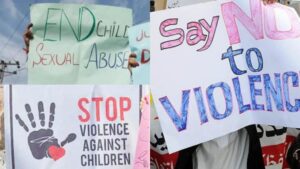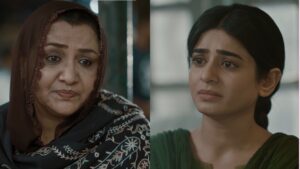
As the weather gets chilly, we welcome the festive season especially in the South Asian communities. Festivals may appear to foster community pride and further human bonds but at what cost? As young women we have seen our mothers working extra hours in the kitchen, be it Eid or any other festival.
While on the surface festivals are displayed as a reason for women to splurge on vanity, only a few know that most women skip getting ready in their new clothes and makeup to ensure that the chicken is cooked well or every nook of the house is clean.
The worst part? She is expected to do it, it’s her duty being a woman.
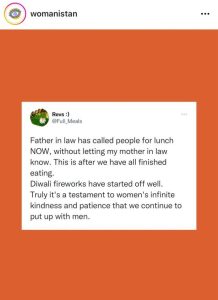
Even women with a good supply of house help bear the pressure that festivals bring because while they contribute in arranging, delegating and performing tasks, the men don’t validate their efforts because apparently the help did all the work. It’s easy to say that women should not need men to validate their efforts, however every women who does that often experiences a sense of guilt or considers it a privilege.
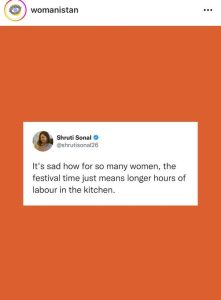 Courtesy: https://www.instagram.com/womanistan/
Courtesy: https://www.instagram.com/womanistan/
Often women who have the means, skip learning cooking which to many people is a life skill. However, the horror of a skill transforming into a duty not only demeans the skill but eventually it reduces a woman into a ‘housewife’ who technically doesn’t have an ‘actual’ job. Women are not considered good enough if they don’t know how to cook or drive but the slogan “Apna Khana Khud Garam Kero” continues to scare men till date.
Even when it comes to beauty standards surrounding festivals, most women are expected to wear heels, earrings larger than the weight of their ears, itchy clothes because that’s what makes them look beautiful. Most beautification processes are disguised as fashion statements while all they are causing is pain. The calluses on women’s feet after every festival are proof!
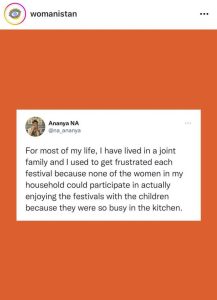
Women may be the source of tints, scents and warmth for this world but what is the source of warmth and love for them?





